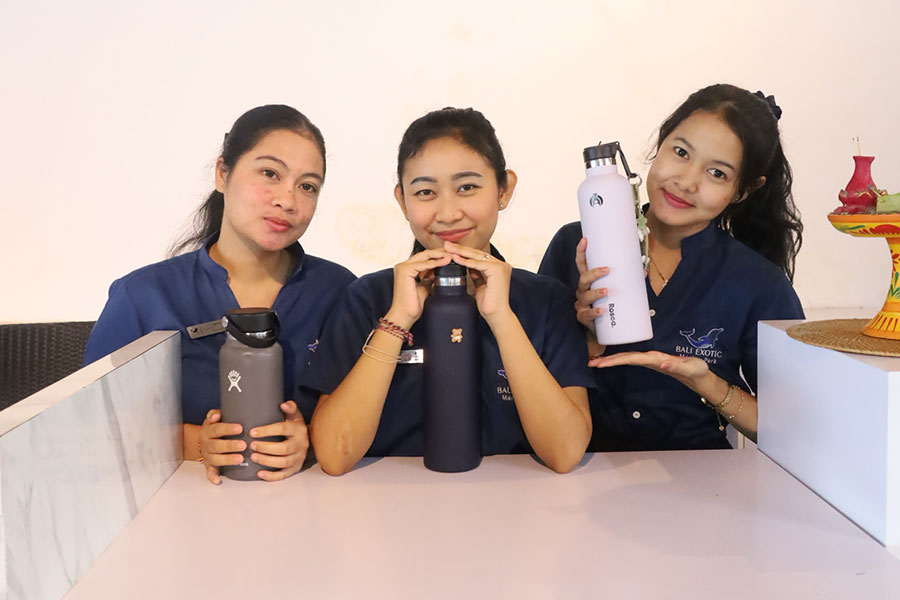Dolphin Care: Keeping Habitats Clean from Plastic
One real form of this commitment is seen in the Dolphin Care program at Bali Exotic Marine Park, an educational marine park that is also a dolphin conservation center in Bali. Through the Dolphin Care program, visitors are not only invited to interact with dolphins, but are also taught the importance of keeping marine habitats clean from the biggest threat today: plastic waste.
What is Dolphin Care?
Dolphin Care is an education and conservation program developed by Bali Exotic Marine Park with a primary focus on protecting dolphins and the marine ecosystem as a whole. This program aims to raise public awareness of the importance of keeping the ocean free from plastic waste—which is a serious threat to marine life.
Through interactive activities, such as educational sessions, thematic performances, and environmental conservation training for children and families, Dolphin Care teaches that protecting dolphins also means protecting the ocean from pollution.
Why is Plastic Dangerous for Dolphins?
Dolphins in Bali, like other marine creatures, are very vulnerable to the negative impacts of plastic waste. Many cases show dolphins and other marine mammals mistaking plastic for food. Swallowed plastic can cause internal injuries, infections, and even death.
In addition, plastic floating in the ocean can get stuck in the fins, mouth, or respiratory tract of dolphins. This causes stress, impaired movement, and even high risks to their survival.
Dolphins in Bali need a clean and healthy ocean to breed, hunt, and socialize. That is why keeping the ocean free of plastic is a crucial step in this conservation program.
Bali Exotic Marine Park: Plastic-Free Zone
One of the advantages of Bali Exotic Marine Park is its commitment as a plastic-free area. All visitors are encouraged not to bring single-use plastic into the marine park area. Instead, refillable drinking bottles, cloth shopping bags, and separate trash bins are provided to support the recycling system.
The steps taken by this marine park include:
- Providing hydration stations to reduce the use of plastic bottles.
- Replacing plastic straws with paper, bamboo or stainless steel straws.
- Providing cloth shopping bags in souvenir shops.
- Visual education about the dangers of plastic in the ocean through murals, posters, and interactive screens.
- Workshop programs on how to recycle plastic waste into useful items.
With this approach, Bali Exotic Marine Park not only maintains the dolphin habitat within their area, but also provides a real example of an environmentally friendly lifestyle for thousands of visitors each year.
Educational Activities in Dolphin Care
The Dolphin Care program is designed not only to entertain, but also to shape a generation that cares more about marine conservation. Some of the activities included in this program include:
- Marine Conservation Education
Children and families are invited to learn about the impact of marine pollution, especially plastic, on animals such as Bali dolphins. Education is packaged visually and attractively so that it is easy to understand.
- Interactive Tour with Dolphin Trainer
See firsthand how trainers care for and interact with dolphins, and understand their care routines. This is an educational and inspiring experience for many people.
- Beach and Sea Clean-up Action
Visitors are invited to take part in beach clean-up activities that are carried out periodically around the Gianyar area and nearby beaches.
- Creative Recycling Workshop
Participants learn to turn plastic waste into creative products such as plant pots, key chains, or household decorations. This education teaches the importance of the principles of reduce, reuse, recycle.
- Introduction to Dolphin Life
An interactive session about the life of dolphins in the wild, their types, and how environmental changes impact dolphin lifestyles.
Why is Dolphin Care Important for Tourists?
In the era of sustainable tourism, tourists are now more aware of the importance of tourism that not only provides entertainment but also has educational value and social responsibility. Dolphin Care Bali is an example of educational tourism that:
- Increases awareness of the environment.
- Invites tourists to be part of the solution, not just spectators.
- Provides a memorable interactive experience, especially for children.
- Encourages an environmentally friendly lifestyle even after returning home.
By joining this program, tourists not only bring home photos and memories, but also a new understanding of the importance of protecting the earth.
Community and School Support
Dolphin Care also collaborates with schools in Bali and outside the region to hold educational visits. Schools can register their students to take part in special programs that are tailored to the environmental education curriculum.
In addition, many marine and environmental lover communities support the Dolphin in Bali campaign, including the #NoPlasticOcean and #SaveOurDolphins movements that involve local communities and foreign tourists.
Conclusion
Dolphin Care at Bali Exotic Marine Park is an amazing initiative that combines conservation, education, and a fun travel experience. This program proves that protecting Bali’s dolphins and keeping the ocean clean from plastic waste is not just the responsibility of the government or activists, but a shared mission for all parties — including us as tourists.
With a plastic-free area, educational activities, and a commitment to sustainability, Dolphin Care is a symbol of hope for a cleaner and safer ocean future for all living things in it.
If you are planning a vacation to Bali with your family, don’t miss the opportunity to visit Bali Exotic Marine Park and join the Dolphin Care movement. Because by loving dolphins, we are loving our ocean and our planet.
